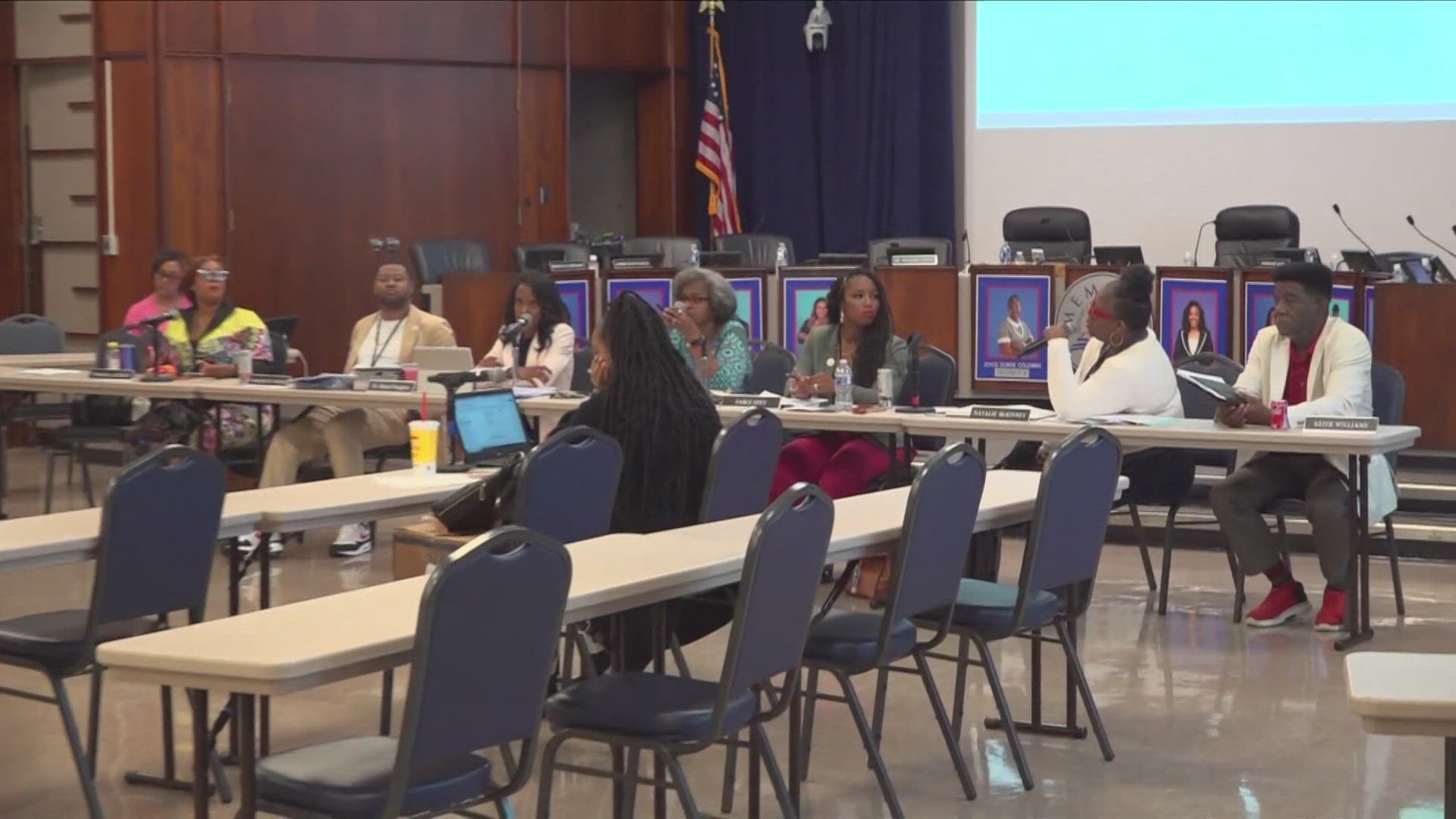KNOXVILLE, Tenn. — There’s one thing the new leader of the University of Tennessee’s Institute of Agriculture wants Tennesseans to understand: Farming impacts everyone.
With agriculture being one of the biggest economic drivers in Tennessee—the industry generated $56.3 billion in 2019—Carrie Castille has the chance to make a real difference as head of one of the state’s essential research centers.
“The stars have aligned,” Castille said. “We have strong leadership at UT. We have a governor who gets it. He gets the importance of agriculture and has a farm background as well.”
Growing up in Breaux Bridge, Louisiana—population 7,500—everything revolved around agriculture, Castille said, and she was right in the middle of it through her community’s 4-H youth development program.
She showed livestock. Her first lamb was named Annie, which she shared during a community forum back in February.
“4-H, for me, is extremely important. 4-H is a part of everything I believe I have become,” Castille said. “It’s taught me how to serve. It’s taught me how to lead. It’s taught me the importance of service learning and also citizenship.”
Historically agriculture-focused, the youth development organization also provides science, technology, engineering and math, civic engagement and healthy living programs.
The 47-year-old most recently served as the director of the National Institute of Food and Agriculture and helped the agency restore its leadership in 4-H programs across the country.
Seeing the strength of Tennessee’s 4-H program is part of what brought her here.
“We have a home in every county. We are a gateway. Every county is a gateway to the University of Tennessee, regardless of the campus,” Castille said. “There’s not a single department in Knoxville, nor is there a single campus or a single county, that we can’t touch and reach.”
It’s also a key part of helping Castille reach one of her short-term goals: Doubling enrollment at the Herbert College of Agriculture within the next five years.
That means at least 3,000 students in the college by fall 2027. According to the university’s Office of Institutional Research and Assessment, 1,452 undergraduate students and 286 graduate students enrolled at the beginning of last fall.
“It’s ambitious, but I think Tennessee is relying on us to be able to create that pipeline of agriculturalists that’s going to support our industry,” Castille said.
By offering senior-level 4-H students college credit for their work, Castille hopes to engage with potential new students earlier.
“There’s an opportunity for them to be able to receive college credit, but also to get recognition and acknowledgment for the hard work that they’re already putting in,” Castille said.
Castille is ready to make Tennessee her new home, but she says it was hard to leave her home in Louisiana.
“I’ve never lived in any other state,” Castille said. “I had an apartment in D.C., but no one really lives in D.C., you know? You’re there to work. For me, being this is the first state that I’ve moved to, it’s a big step.”
Before working for the National Institute of Food and Agriculture, Castille served as both Louisiana state director for rural development and the mid-South regional coordinator for the USDA Farm Production and Conservation mission area.
“When you’ve invested so much in growing an organization, and growing people and growing the resources that you contribute, it’s always hard to leave because you leave a piece of your heart,” Castille said.
Still, her previous experience in Louisiana set her up with Tennessee connections. Before taking this job, she had already worked with former Tennessee Commissioner of Agriculture Julius Johnson, former Tennessee Director for Rural Development Jim Tracy and Tennessee’s Natural Resources Conservation Service leader Sheldon Hightower, to name a few.
Additionally, her time at the National Institute of Food and Agriculture, which provides support to all the land grants in the country, gave her the opportunity to work closely with the University of Tennessee’s Institute of Agriculture.
“What I realized through the job that I had at NIFA is every state has a land grant university—every single state—but not every land grant university has a state like Tennessee,” Castille said.
She’s hoping to expand those partnerships and research program—and secure more funding—by seeking out more federal grants.
“We need to work cross-border, at the regional level, with every campus at the UT system, and with traditional and nontraditional partners,” Castille said in an email.
The UT Institute of Agriculture is the agriculture academic and research arm of University of Tennessee System and the University of Tennessee at Knoxville. In 1968, the Herbert College of Agriculture, AgResearch and the UT Extension program combined under one roof to create the institute. UT incorporated the College of Veterinary Medicine in 1974.
As senior vice president and senior vice chancellor, Castille reports to both UT System President Randy Boyd and UT Knoxville Chancellor Donde Plowman. In 2019, it merged with UT Knoxville after nearly 10 years of operating as a separate academic and research entity. The reunification dramatically increased the school’s national ranking in the National Science Foundation Higher Education Research and Development.
Castille started as the senior vice chancellor and senior vice president for the institute on July 1. She replaced Tim Cross, who had been with the college for more than 25 years.



